Watching her father work long hours as a former Taichung city councilor, the last thing Katrina Chen (陳葦蓁) wanted to be was a politician. It was normal to watch him rush off at odd hours such as 2am to intervene in traffic accidents. Visitors seeking assistance filled his office on the ground floor of their family home and the phone could go off at any hour.
“My dad was in poor health because of all the work campaigning. He did not spend a lot of time with us. Even my mom sacrificed a lot of her time just helping out my dad,” Chen recalls in her sparsely furnished new office a few days before her official swearing-in as member of British Columbia, Canada’s Legislative Assembly and minister of state for child care.
MAKING HISTORY
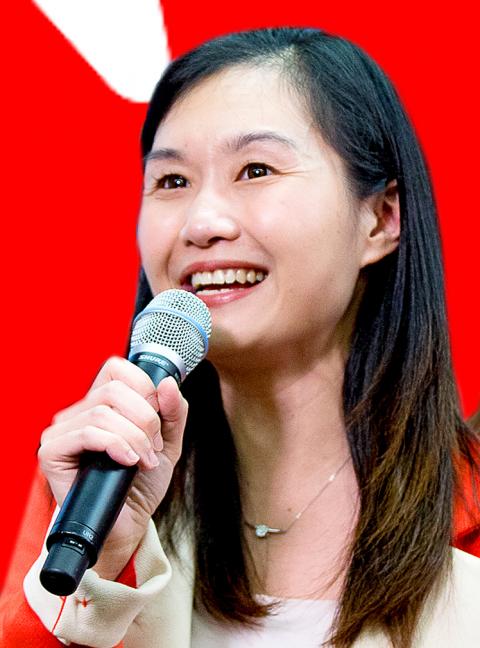
Photo courtesy of New Democratic Party
Chen and fellow New Democratic Party (NDP) candidate Anne Kang (康安禮) made history on May 9 when both became the first Taiwan-born members of British Columbia’s legislative assembly. It was a moment of pride for the western province’s sizable Taiwanese immigrant communities presiding mainly in Vancouver, Burnaby and Richmond.
The two are serving different Burnaby communities after a contested election that ousted the ruling British Columbia Liberal Party after 16 years in power. NDP leader John Horgan also handed Chen a post in his cabinet as the minister of state for child care and designated Kang as parliamentary secretary for seniors.
Chen’s career path did not come without challenges, starting with being raised in a “high-discipline” family in which her parents physically punished her to instill manners. But as long as she demonstrated good character, they allowed her to explore her interests in literature, music and English. Struggling with the Taiwanese education system and the college entrance exams, a 17-year-old Chen moved to Canada in 2000 so she could focus on subjects she excelled at.
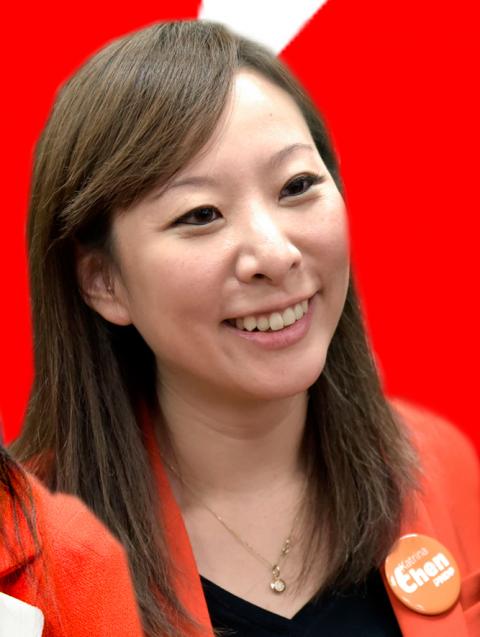
Photo courtesy of New Democratic Party
After graduation, Chen had her heart set on working for nonprofits and zeroed in on gender equality and human rights issues, but she ended up settling for a minimum wage at the grassroots organization ACORN (Association of Community Organizations for Reform Now) rallying around issues like homelessness, community cleanliness, and poverty. Through local Taiwanese connections, Chen became familiar with area politicians and found work as a constituency assistant under both federal and provincial officials before running for office.
CHALLENGES AS WOMEN
Chen and Kang have established a friendship around their roles as young mothers in a demanding role.
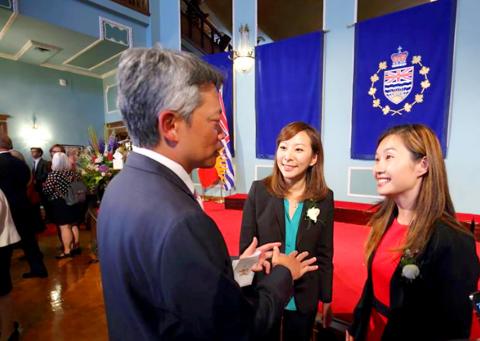
Photo courtesy of Anne Kang
Kang recalls the toll of campaigning immediately after giving birth from 2007 to 2008 when she launched her political career as a candidate for Burnaby’s city councilor. In between the first and second municipal elections, she had a second child. Aside from grappling with balancing motherhood and public service, Kang acknowledges that she has encountered double standards based on gender and age.
“Women need to exert extra effort to be heard or to be recognized,” she says. “I felt that I had to be stronger and articulate louder. I had to fight for my chance to speak and my chance to be recognized in a public setting whereas [if it were] your typical Caucasian man walking in, people would say, ‘Oh, welcome councilor.’ That was never given to me as a gift.”
Born in 1977 in Changhua in an agrarian town to preschool teacher mother and a father who was the local church pastor, Kang’s life revolved around the church and Christian teachings that emphasized the value of giving back to the community.
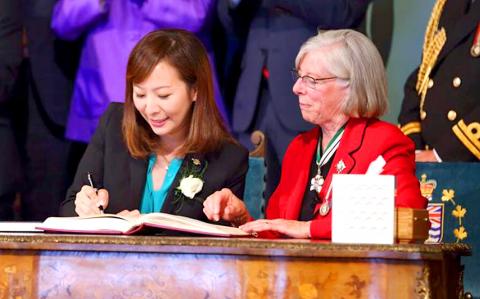
Photo courtesy of Katrina Chen
That didn’t change when her family uprooted to Canada in 1984 where her father continued ministering. As she watched her father counsel people with difficulties fitting in at school or with marriage and immigration problems, their grateful responses left a lasting impression on Kang.
Like Chen, politics was not on Kang’s radar. She was determined to be the a “patient” and “courageous” teacher, not unlike the ones she first encountered as a newcomer to Canada.
But after serving in a variety of organizations such as heading the Taiwanese Heritage Association as a founding director, she realized that policymaking would broaden her capacity.
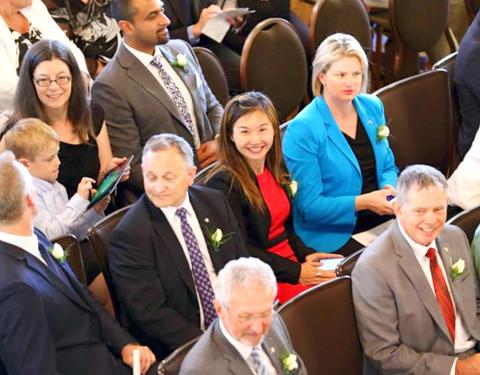
Photo courtesy of Anne Kang
Having gotten to know the two women, Tom Lee (李志強), director-general of Vancouver’s Taipei Economic and Cultural Office, says that they both demonstrate the passion for public service needed to go far in their careers.
In addition, Lee marveled at the gender balance in the provincial government with an equal number of cabinet posts assigned to men and women. The Taiwanese government, says Lee, could learn from British Columbia’s example.

Photo courtesy of Katrina Chen

Taiwan has next to no political engagement in Myanmar, either with the ruling military junta nor the dozens of armed groups who’ve in the last five years taken over around two-thirds of the nation’s territory in a sprawling, patchwork civil war. But early last month, the leader of one relatively minor Burmese revolutionary faction, General Nerdah Bomya, who is also an alleged war criminal, made a low key visit to Taipei, where he met with a member of President William Lai’s (賴清德) staff, a retired Taiwanese military official and several academics. “I feel like Taiwan is a good example of

March 2 to March 8 Gunfire rang out along the shore of the frontline island of Lieyu (烈嶼) on a foggy afternoon on March 7, 1987. By the time it was over, about 20 unarmed Vietnamese refugees — men, women, elderly and children — were dead. They were hastily buried, followed by decades of silence. Months later, opposition politicians and journalists tried to uncover what had happened, but conflicting accounts only deepened the confusion. One version suggested that government troops had mistakenly killed their own operatives attempting to return home from Vietnam. The military maintained that the

Before the last section of the round-the-island railway was electrified, one old blue train still chugged back and forth between Pingtung County’s Fangliao (枋寮) and Taitung (台東) stations once a day. It was so slow, was so hot (it had no air conditioning) and covered such a short distance, that the low fare still failed to attract many riders. This relic of the past was finally retired when the South Link Line was fully electrified on Dec. 23, 2020. A wave of nostalgia surrounded the termination of the Ordinary Train service, as these train carriages had been in use for decades

Lori Sepich smoked for years and sometimes skipped taking her blood pressure medicine. But she never thought she’d have a heart attack. The possibility “just wasn’t registering with me,” said the 64-year-old from Memphis, Tennessee, who suffered two of them 13 years apart. She’s far from alone. More than 60 million women in the US live with cardiovascular disease, which includes heart disease as well as stroke, heart failure and atrial fibrillation. And despite the myth that heart attacks mostly strike men, women are vulnerable too. Overall in the US, 1 in 5 women dies of cardiovascular disease each year, 37,000 of them